Apple's attempts to make its users more aware of their health over the years has introduced many new products and services, all with the goal of getting users in shape, but considering the sedentary way many people live their lives, especially those who work from home, maybe the heavy-handed push to get fitter is warranted.
One of the most important things in a person's life is to stay healthy, but depending on the individual, this can range from making sure they don't get ill to being extremely fit and capable of running for miles. Everyone has their own idea of what it means to be healthy, and as is often the case, the mental picture of a person's ideal version of what that means probably doesn't line up with the reality of their own situation.
While a few decades ago, it was extremely easy to maintain a certain level of fitness just from living a daily life, the constant march of innovation and technology has helped make life easier, but at the same time removing the same opportunities. Sure, 30 years ago you could've walked a few hundred yards to find a postbox to send a letter to someone on the other side of the country, but now the same message can be dispatched instantly, without the effort of the walk or even having to put pen to paper at all.
A world of homebodies
Technology has also led to new and exciting ways for people to be entertained, though this has largely impacted home-based activities rather than those where you need to leave the house and actually go somewhere. The meteoric rise of gaming and video streaming services, among other developments, is noted in one study to have caused Americans to spend 7.8 days more at home in 2012 compared to a similar study in 2003.
The increased communication options available also opened up other ways to work, which has led to a boom of people working away from the office, and doing so at home. A 2018 study by Switzerland serviced office provider IWG found that 70 percent of professionals work remotely at least one day a week and 53 percent do so for at least half the week.
In the "American Time Use Survey" by the U.S. Department of Labor published in 2018, it was noted that 24 percent of full-time employed workers spent time doing their jobs while at home in 2017, up from 18 percent in 2003.
Add in that those who work from home are probably doing so with free access to their own food whenever they want and creates their home-work environment, as well as the plethora of entertainment options at home, and it can become very easy for some home workers to minimize the times they go outside or even do exercise.
AppleInsider's editorial team knows the issues too well, due to the job involving long stretches in front of a screen in a relatively comfy office chair, that can, by its nature, promote a lethargic lifestyle. By way of example, during some of the crazier news weeks in the last six years on this beat, this writer has to find reasons to justify leaving the house. Between the job, the post-work entertainment provided through the internet, and the ability to do grocery orders online, there have been periods where I simply didn't leave the house for over a week.
The sedentary lifestyle promoted by the convenience of modern-day technology is already a problem, according to the World Health Organization. It is claimed "insufficient physical activity" is one of the leading risk factors for death globally, and is a key risk factor for cardiovascular diseases, diabetes, and cancer, among other noncommunicable diseases.
The WHO reckons one in four adults in the world are not active enough, with more than 80 percent of the adolescent population deemed insufficiently physically active. Governments have already tried to stave off the decline in general health, with 56 percent of WHO member states having policies to promote physical activities, and all member states have agreed to reduce the number of people not doing enough exercise by 10 percent by 2025.
Even with the attempts of various governments around the world to try and make their citizens get off their backsides, it can still seem like those in the developed world will soon resemble the version of humanity depicted in "Wall-E," with those who opt for the sedentary lifestyle likely to be the first to end up in those floating chairs of lethargy.
What does Apple have to do with this?
It's likely you are expecting a stretch of text about how Apple is complicit in humanity's dive towards a sloth-like existence, but aside from being one of the major contributors to the technology world in the last decade or two, it's not really something that could be pinned on the company. The real issue for most is humanity's overall tendency to go for the easiest route to happiness, the path of least resistance, that is the real problem.
In fact, under the reins of current CEO Tim Cook, Apple is seemingly doing everything it can to try and make its customers healthier. Cook's tenure at the top has seen Apple move more towards a health-conscious existence, with various tools and services at the disposal of its users to keep them in shape, or more likely, to nudge them in the right direction.
In 2014, Apple introduced HealthKit and the Health app, which gave iPhone users a one-stop shop for collecting their health-related measurements from assorted devices into one place. The amount of data the tool can hold is mind boggling in its variety, and hands users an easy way to see their body's changes over a longer period or time.
The more data a user can collect about themselves, the more trends they can see and act upon.
The idea of dealing with health data was expanded upon the following year with ResearchKit, giving ways for medical researchers to tap into the HealthKit platform for studies, which could potentially lead to new treatments for ailments.
On the hardware side, along with the plethora of weighing scales, heart rate monitors, and other equipment to help users produce their quantified self, Apple has also forged ahead with the Apple Watch, a wearable that has become the effective standard for not only smart watches, but also for fitness trackers.
The Apple Watch is largely meant to cover two areas of a user's life: productivity and health. Sure, it's a Dick Tracey-style wrist phone that gives you notifications and has Siri to answer queries for you in a bid to get things done, but a major chunk of it is to make sure the person wearing it is healthy.
The little square of metal and glass offers more data points to the aforementioned Health app, with the majority of this element pertaining to how the wearer moves around, and seeing how their body handles the stresses put upon it.
It isn't hard to see that it has the capability to make an impact on a user's health, as one study in November revealed those who were provided a subsidized Apple Watch were 34 percent more active, and upped their high-intensity activity days by 52 percent. Even participants in the United States with the highest average body mass index figures saw their physical activity double when using the Apple Watch.
Where the Health app is a great place for collecting data, the Apple Watch is a constant reminder that you are being monitored, and to get moving or else you'll look bad to yourself later on when you check in with the app.
Heck, even before the Health app and Apple Watch, Apple was promoting a healthy lifestyle by working closely with sportswear brand Nike. Before you could buy a Nike+ Apple Watch, you were able to acquire a Nike Fuelband, a fitness tracker with its now-practically-dead "NikeFuel" activity metric.
Looking to the future, Apple is also rumored to be adding some fitness tracking functionality to the AirPods for the second-generation release, which could include some of the heart-rate monitoring element from the Apple Watch and other sensors that could measure a person's wellness from their ear canal. Not to mention other improvements it could make to the iPhone and Apple Watch to make them more health-focused.
Some may be wondering why Apple does so much to try and keep its customers healthy. The obvious cynical view is that the company has an interest in making sure its users live as long as possible, so it can keep on collecting revenue from iPhone upgrades and other elements.
Until Apple moves into the funeral business, to the company you're more valuable alive than dead.
On a less cynical level, Apple does frame itself as attempting to inspire change and to better humanity. For example, in a recent letter to employees, Apple CEO Tim Cook thanked staff for "all you do to help dreamers become doers, to expand human potential, and to do the best work of their lives."
It's likely that Apple considers the personal betterment of its clientele fits under this aim, and so it continues its work to make everyone better.
It all comes down to willingness
Of course, while Apple's credentials in helping make those who are sedentary in their lifestyle become more active is fairly apparent, getting everyone fit and healthier isn't something that the company can force. As many sappy movies suggest, the change must come from within.
Apple cannot force anyone to get off their backside and to start training for a marathon. That need to get fitter, to lose weight, to improve oneself, that all has to come from the individual feeling the urge to do something about their current living habits.
All Apple can do is to provide as many tools as it can to people who decide to make a difference and prolong their life.
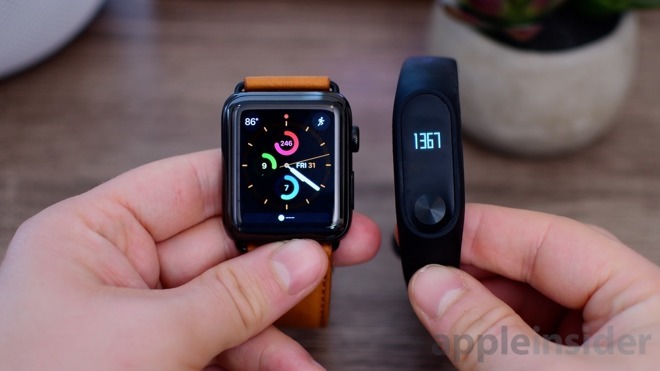 You don't need an Apple Watch or another fitness tracker to exercise, but they do help as a reminder to actually do some
You don't need an Apple Watch or another fitness tracker to exercise, but they do help as a reminder to actually do someFor those sitting in their office chair while hunched over the keyboard, there's little that Apple can do to encourage them from their seat and outdoors for a brisk walk. However, if they suddenly have a thought that change is needed while sipping one too many bottles of Mountain Dew, the tools are ready and willing to help them take their first steps to a better future.
Sure, Apple isn't going to make every user turn into someone with a figure fit for a Marvel movie superhero, but even stepping out for a small walk and reconsidering a few of the poor life choices sedentary living promotes is considered a win for humanity as a whole.
In this writer's case, I've taken the decision to try and leave behind a lifetime of weight jokes, in favor of a better future with a reduced chance of having a heart attack. Progress thus far has been logged in the Health app, an Apple Watch Series 4 has been acquired, and there is a gym that's so close to my home it's practically taunting me.
Hopefully my steps to avoid the "Wall-E" future won't be in vain. And, I'll keep you up to date as I go and share anything I learn along the way. I hope you will too.
 Malcolm Owen
Malcolm Owen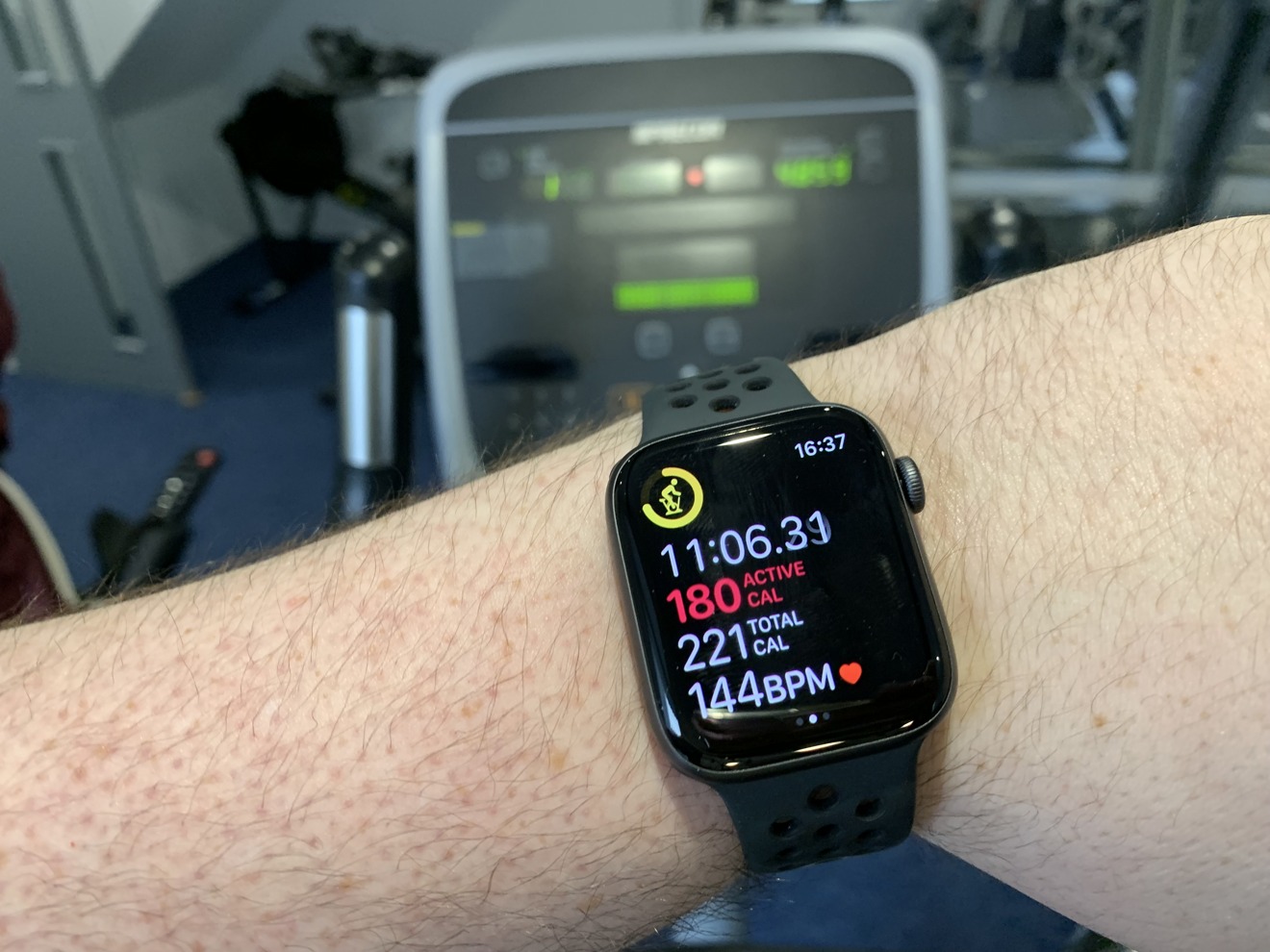

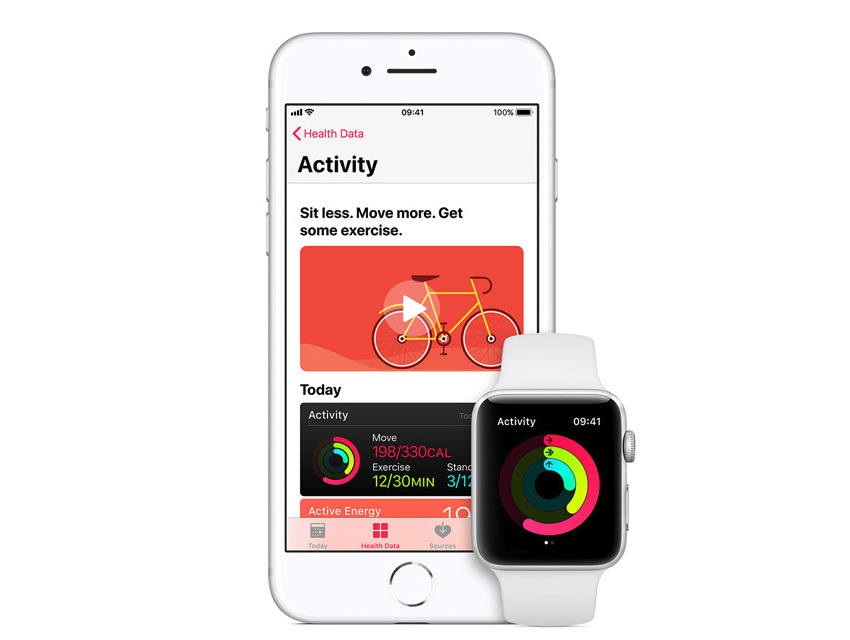
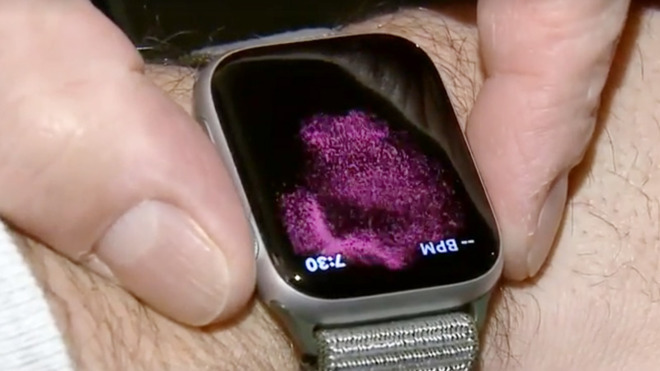
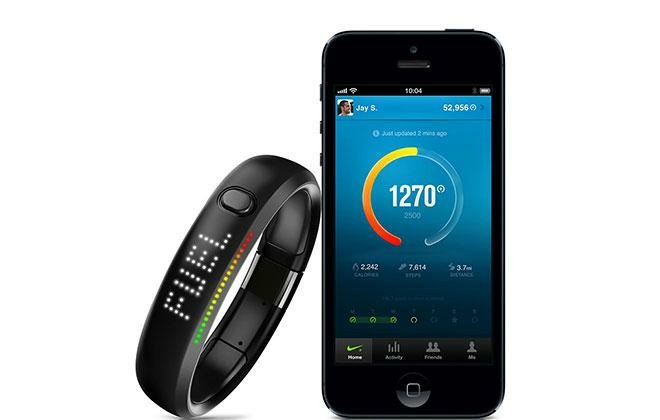







-m.jpg)






 Charles Martin
Charles Martin
 Christine McKee
Christine McKee
 Wesley Hilliard
Wesley Hilliard

 Andrew Orr
Andrew Orr
 William Gallagher
William Gallagher
 Sponsored Content
Sponsored Content








36 Comments
Your Apple Watch is not going to save you, nor is some fad diet or magic exercise program. I say that as someone on my third Apple Watch.
Controlling your weight, excepting unusual medical circumstances, is all about the math. Some is calories and some has to do with where those calories come from. If you consume more calories than your body needs to maintain itself, your body will attempt to store that. Even if you consume the "proper" amount of caloric intake, if it is not balanced you are not going to be healthy. You do not have to be a Clinical Dietitian to figure this stuff out under normal circumstances.
We are designed to move- not sit on a couch or in a chair or laying in a bed for the bulk of the day. Beyond the burning of calories, our joints need movement in order to maintain themselves in a healthy state and the same is true of muscles and connective tissues. There are many great ways to exercise, but swimming is among the best as it uses the whole body, is aerobic, low impact and provides positive and negative resistance. You do not see many fat swimmers (people who swim regularly).
And drink enough water. Most Americans do not drink enough water- not tea, fruit juice, sports drinks or soda. Water. You would be amazed if you knew how many people come to clinics and ERs thinking something is wrong when they are just constipated. A sedentary lifestyle, not enough hydration and bad diet can do that.
Most Americans eat too much, eat too much junk, do not drink enough water and do not move enough. It does not take a watch to fix that set of problems.